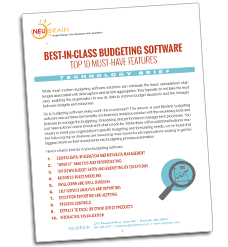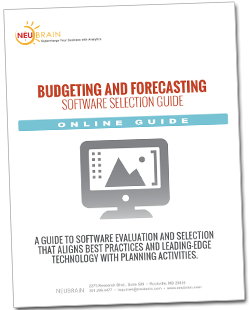It is a common mistake to assume that automation alone will bring necessary budget process improvements to an organization. Automating an inefficient or unintelligent budget process just makes the same process faster, not better.
The reality is traditional practices that govern budgeting, planning, forecasting, reporting and risk management are becoming obsolete in the context of a fast paced digital marketplace and a volatile and uncertain global economy. Long established budget practices provide a false sense of security and fail to cope with the speed and volatility of today’s markets.
Additionally, the traditional budgeting process is widely decried, both by FP&A personnel—who must reconcile the requests from business managers with the targets handed down from the C-suite—and the business line managers they support—who view the budget process as a bureaucratic exercise, a distraction from their job, a drag on their time, and a purely finance-driven process.
As you consider a new budget system, remember this is the optimal time to evaluate the strategies that can help your organization develop a more agile and intelligent budget process, use this process as decision making tool rather than a negotiation, and positively change your organization’s perception of budgeting.
The following are a few strategies and best practices to consider:







